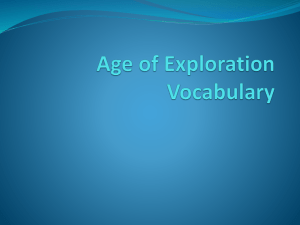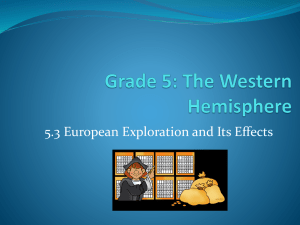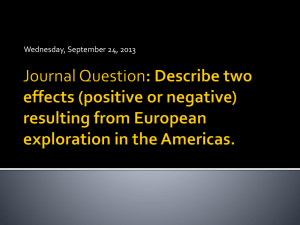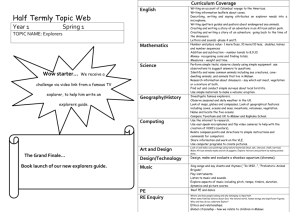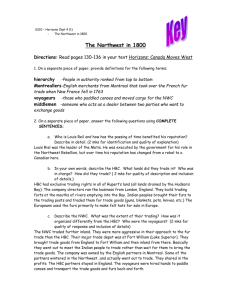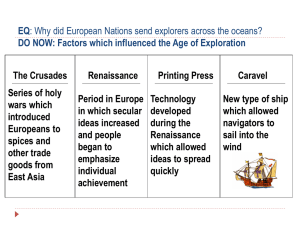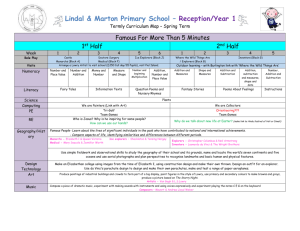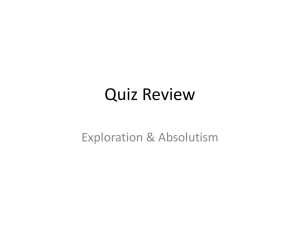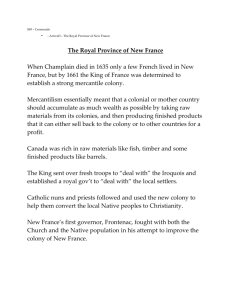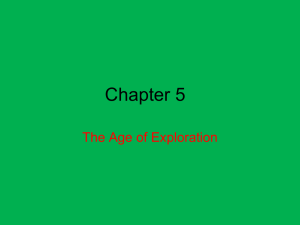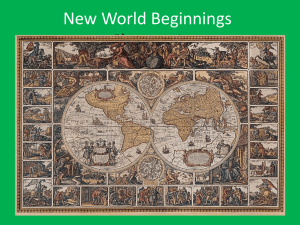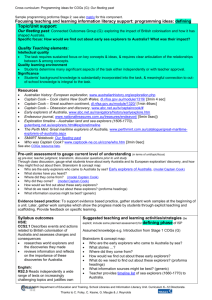Exploration
advertisement
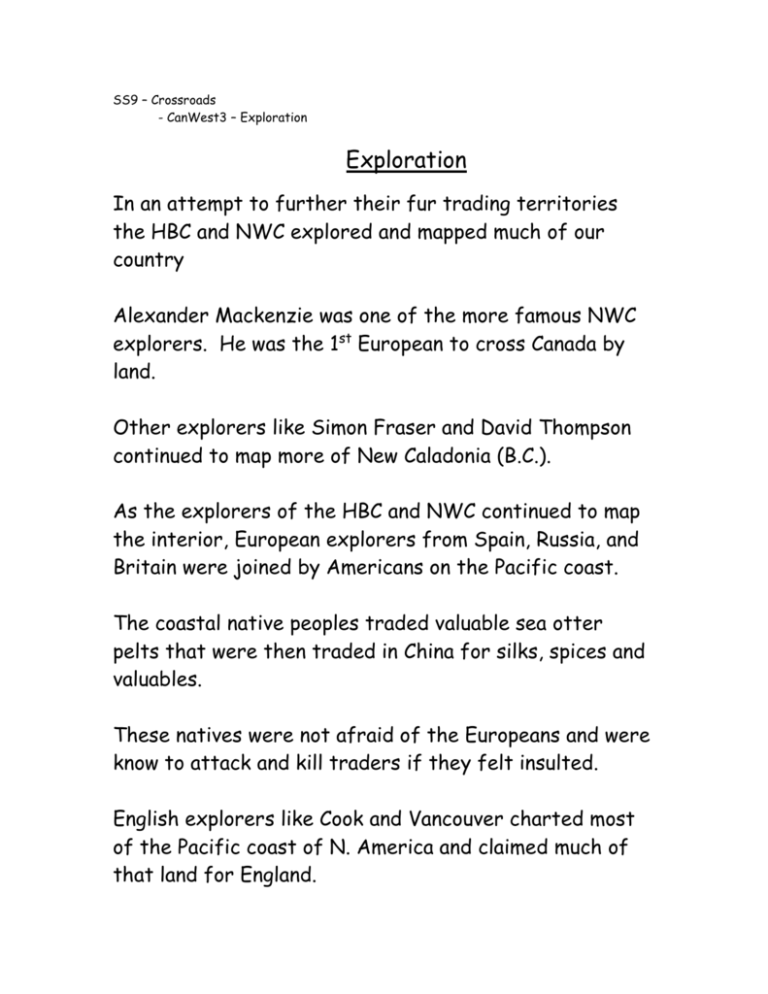
SS9 – Crossroads - CanWest3 – Exploration Exploration In an attempt to further their fur trading territories the HBC and NWC explored and mapped much of our country Alexander Mackenzie was one of the more famous NWC explorers. He was the 1st European to cross Canada by land. Other explorers like Simon Fraser and David Thompson continued to map more of New Caladonia (B.C.). As the explorers of the HBC and NWC continued to map the interior, European explorers from Spain, Russia, and Britain were joined by Americans on the Pacific coast. The coastal native peoples traded valuable sea otter pelts that were then traded in China for silks, spices and valuables. These natives were not afraid of the Europeans and were know to attack and kill traders if they felt insulted. English explorers like Cook and Vancouver charted most of the Pacific coast of N. America and claimed much of that land for England. SS9 – Crossroads CanWest3 - Exploration Exploration Directions: Read pages 271-279 in your text Crossroads – A Meeting of Nations. 1. On a separate piece of paper, provide definitions for the following terms; navigational instruments mariners circumnavigate coastline mapping epic 2. On a separate piece of paper, answer the following questions using COMPLETE SENTENCES; a) Name 2 NWC explorers and describe what they found. (2 mks for names and quality of details) b) What did Simon Fraser call the interior of British Columbia. Why did he call it that? (2 mks for quality of response) c) Who were the first two European countries to explore the Pacific coast of North America. Name and describe an explorer from each country. (2 mks for identifying and then describing the two countries and their explorers) d) Why do you think Captain James Cook is so famous? (2 mks for quality of thought and inclusion of details) 3. Either by using the library or the internet provide a brief biography complete with a picture of George Vancouver. Be sure to include the important facts of his life and his most famous voyages to the Pacific coast of North America. Conclude with your views about how we are affected today by his explorations. For example….what places are named after people in his expeditions, what parts were claimed by the British and how do we see the British influence today? What was he looking for in North America and did he find it? How do we view his work from our perspective today? (16 marks) Provides abundant plausible information Communicates clearly and in an interesting manner Higher thinking skills (x 2) 4 3 Provides abundant, highly plausible information about the topic. Is written in a very clear and especially interesting manner. Pleasing production. Provides sufficient information that is generally plausible. Is generally clear and contains a number of interesting details. Production generally welldone. Provides some link between past, present and future and some inferences. Provides numerous links between past, present and future. Makes inferences and suggests possible solutions. 2 Provides minimally adequate information that is often plausible. 1 Provides very limited information that is seldom plausible. Some ideas are clearly expressed and contain a few interesting details. Production not well done (sloppy, unorganized) Account is generally unclear and not interesting. Production work minimally done. Provides little insight into relationships throughout history. Minimal to no insight.
